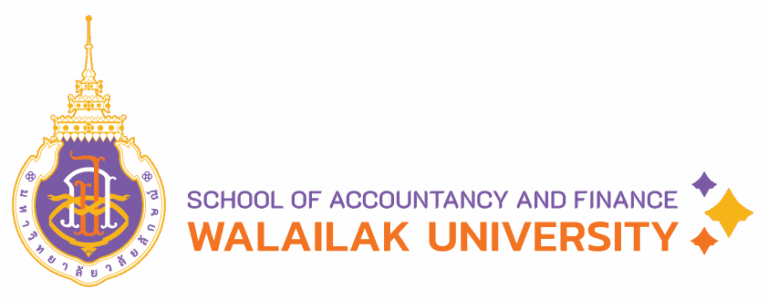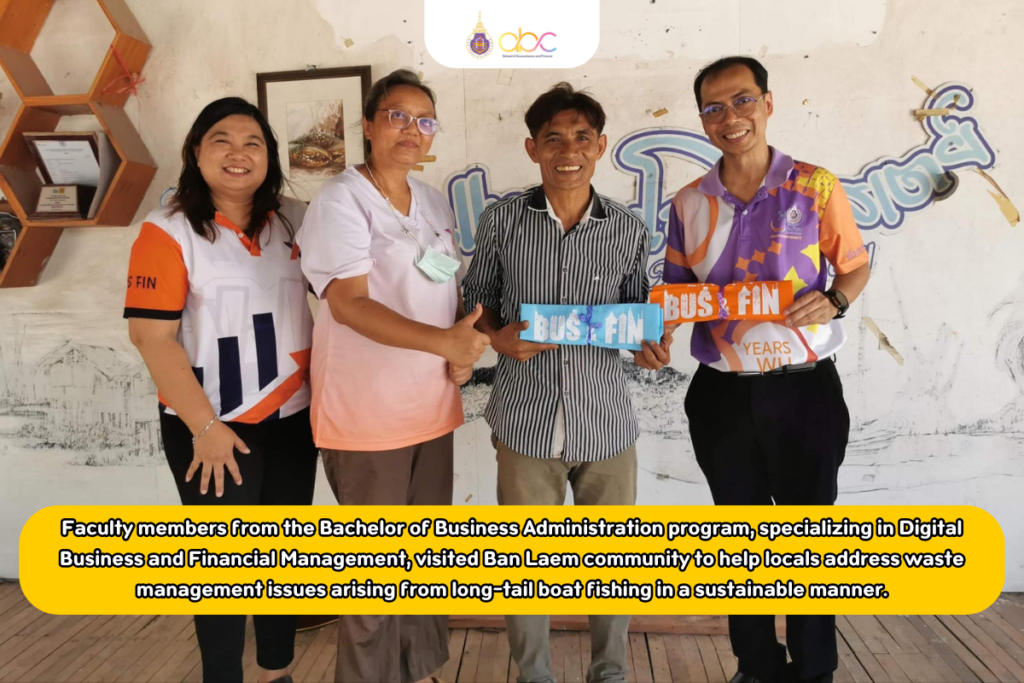Led by Mr. Suchart Chansamran, Assistant Professor Nalinee Tinnam, and Assistant Professor Dr. Pornpen Tipyanan, the faculty visited Ban Laem community in Moo 7, Tha Sala Subdistrict, Tha Sala District, Nakhon Si Thammarat Province, in May 2024. This visit followed a previous one by faculty and students of the Organizational Innovation and Development course, where they initially learned about the community’s challenges. The faculty became deeply interested in studying these issues further.
Ban Laem is a community where the main occupations are fishing and homestay tourism. Currently, the community has around 40 long-tail fishing boats and 20 homestay service providers. The community offers various cultural tourism activities, such as mud spa treatments, mangrove reforestation, demonstrations of mangrove leaf dyeing, and community cycling tours.
In discussions with local leader Mr. Taksin Minman, the primary issue identified was waste management from long-tail fishing boats. This waste includes spoiled or decayed fish, shells caught in nets, and unwanted seaweed or plants, which the fishermen often discard. This waste creates environmental problems, such as unpleasant odors, flies, and pollution in public areas, negatively impacting the community’s quality of life and reducing tourist satisfaction.
The community desires a sustainable solution to manage this waste. Through consultations with the faculty, the idea of processing the fishing boat waste into value-added products or community-based products emerged. This approach could generate income and reduce environmental problems. However, the locals lack the necessary knowledge to implement this plan. Consequently, the faculty coordinated with various sectors to assist the community in addressing these issues under the WU-Social Engagement academic service project. This initiative aligns with the Sustainable Development Goals (SDGs) set by the School of Accountancy and Finance and the Academic Service Center of Walailak University for the fiscal year 2024.


